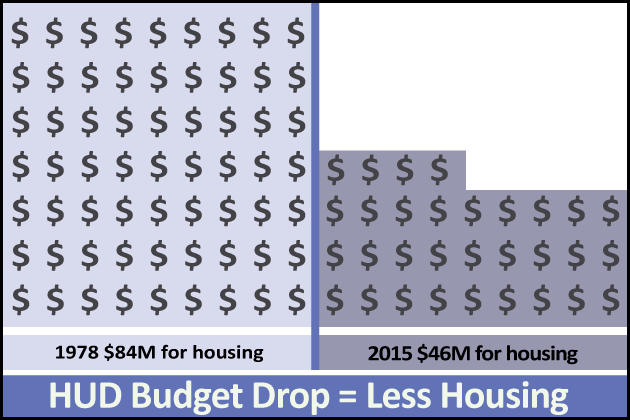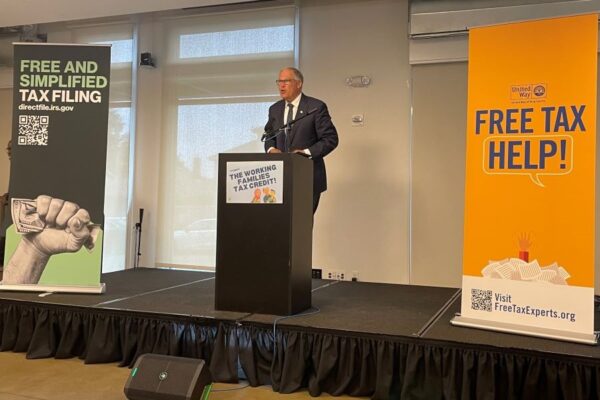We can build our way out of homelessness
 Guest blogger, Rachael Myers, Executive Director of Washington Low Income Housing Alliance, answers the question, “Can we build our way out of homelessness?”
Guest blogger, Rachael Myers, Executive Director of Washington Low Income Housing Alliance, answers the question, “Can we build our way out of homelessness?”
We frequently hear the phrase “we can’t build our way out of homelessness.” It’s a talking point that people use when advocating for important strategies like safe places for homeless folks to camp or rapid rehousing programs. Or to recognize that the solution also includes prevention and strategies to make private market rental homes more accessible to people leaving homelessness. Everyone is making the same, valuable point – given our current resources, we need to address the problem using all the tools we have available.
Since we all agree on that point wouldn’t it be better just to say that directly? “We can’t build our way out of homelessness” doesn’t accurately convey what we mean and is in fact harmful to our efforts to generate more resources to expand housing for people experiencing homelessness.
Implied in this phrase is that there is resistance or ignorance among federal, state, and local policy makers regarding housing people experiencing homelessness in ways other than building housing. In fact federal, state, and local policy makers have for years recognized and invested in other methods of getting people housed like Section 8 vouchers, state and local vouchers, or other rapid rehousing efforts.
It is harmful because it singles out one valuable approach to housing people experiencing homelessness as ineffective. If we can’t build our way out of the problem why should we invest in the Housing Trust Fund or tax ourselves for our local housing levy?
The fact is, given enough resources, we can build our way out of the problem. It would be a more costly solution over the long term, but we could also solve the problem with enough vouchers, if we had enough landlords willing to accept people experiencing homelessness and supportive services for those who need that level of help. We need to do both, and more.
The reality is that while many of factors contribute to any one person or family’s experience of homelessness, the overwhelming reason homelessness has reached such a crisis point is that the federal government has severely reduced its effort to build homes for people with the lowest incomes. In 1978, HUD’s annual housing budget was about $84 billion. It’s about $46 billion now. In exchange we’ve gotten a little over $2 billion in McKinney Vento funds to address the homelessness crisis that came with that reduction. State and local funds have been unable to make up what we’ve lost in federal housing production.
Again, the point we all agree on is that we need to use all the tools we have to make homelessness rare, and when it does happen brief. In January, volunteers with the Seattle/King County Coalition on Homelessness found a 21% increase in people surviving outdoors. In King County there are only 15 affordable homes available for every 100 extremely low-income household. And across the state last year, there were more than 32,000 homeless school kids.
There’s little doubt that we must do everything we can—including building housing—to solve this crisis. We shouldn’t undermine one key strategy with a talking point that doesn’t say what we really mean.





Comments